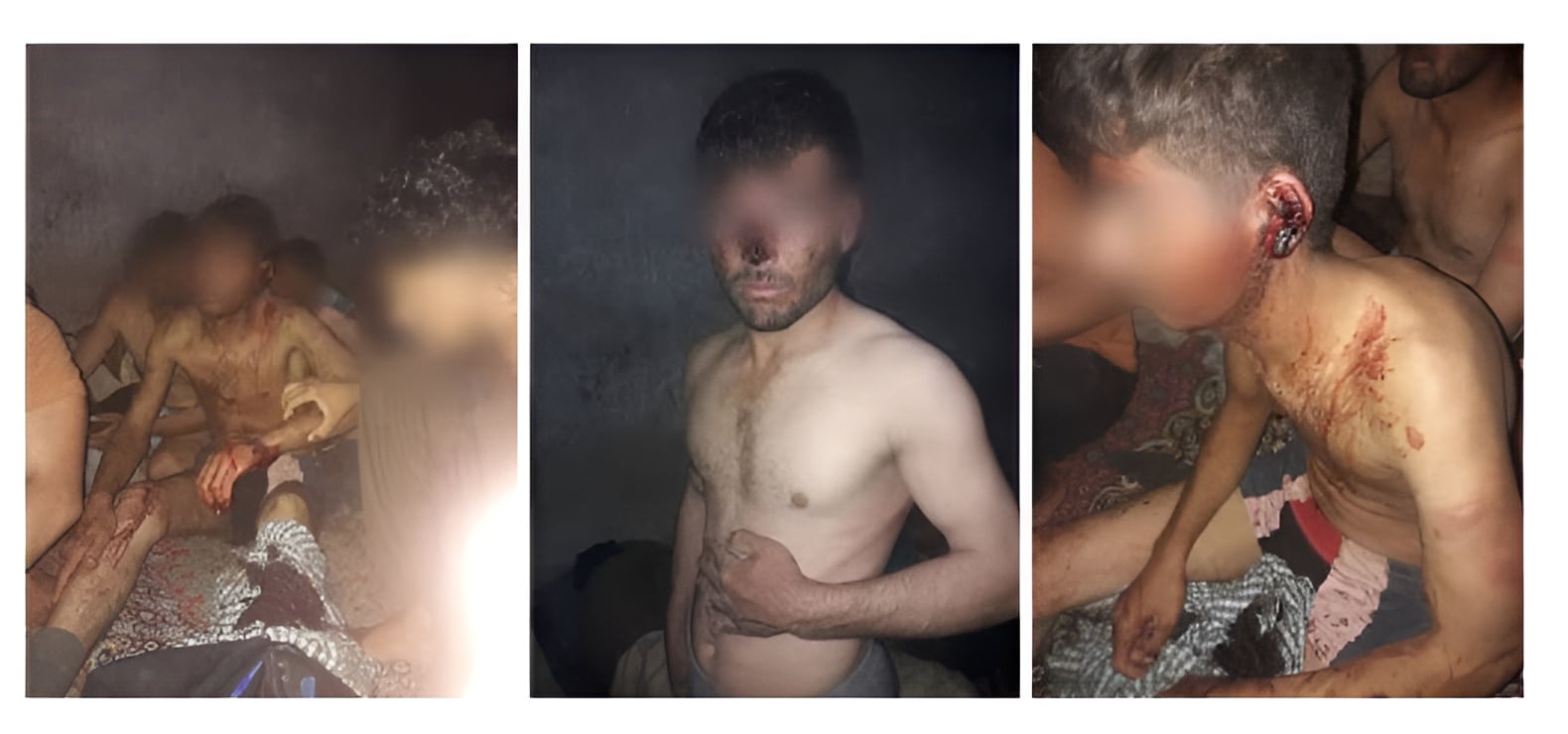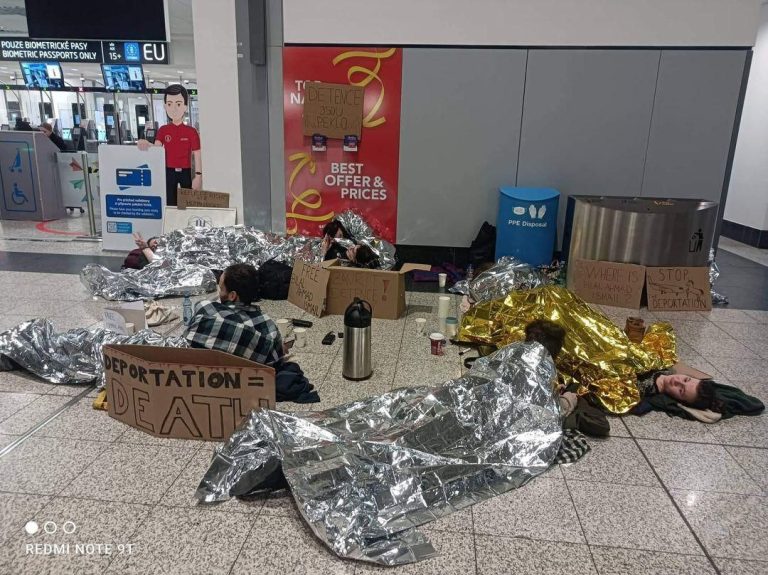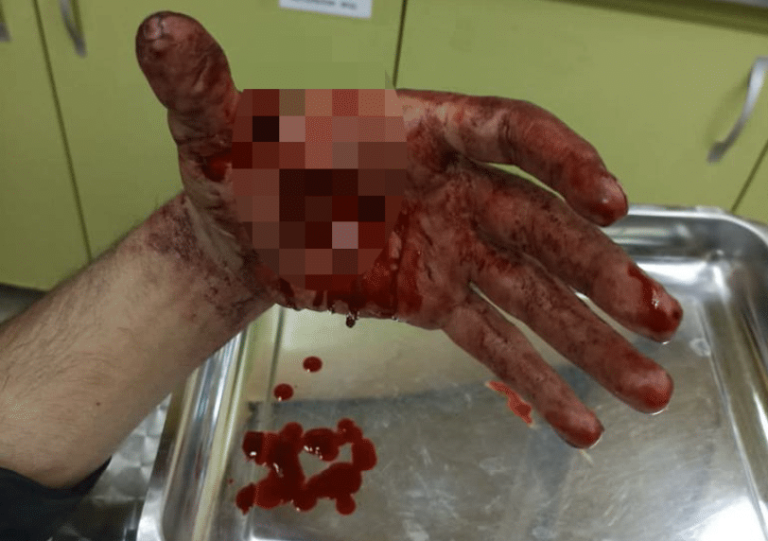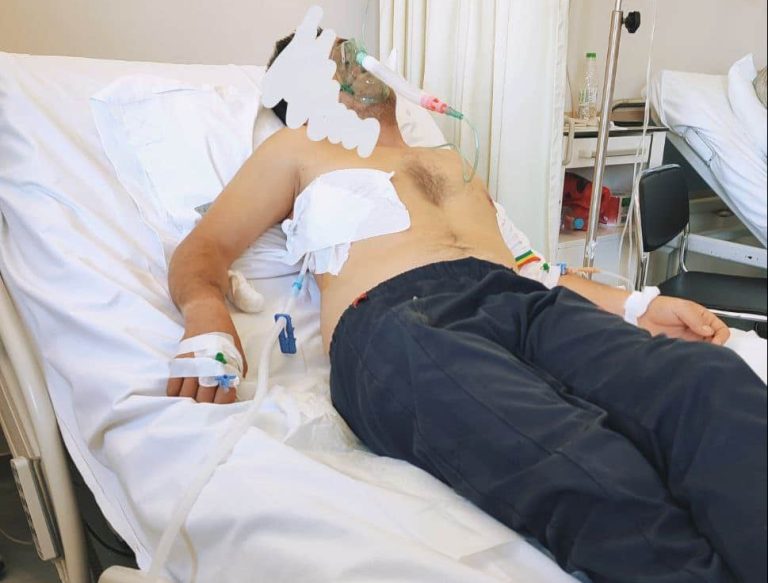By Lusi Domeney with the information of one victim of this pushback / Photos shared by the person who tells the story
Recently we were contacted by Amir (fake name to protect his identity) who often writes to No Name Kitchen about the humanitarian situation for people in transit through Turkiye (or Turkey). Again he was sharing about a brutal pushback from Turkiye to Iran but this time it was a personal story about his brother, accompanied by the horrific evidence of violence in the pictures we have been permitted to publish. The blood is blurried to avoid hurting someone and the faces covered to protect their identities.
In his own words, Said (Amir’s brother, and also a fake name for this report) recounts his story:
“I was one of the people who served in the Ministry of Internal Affairs in the Afghan presidential system. Our administration was directly under the influence of ISAF. I was an employee of the Department of General Management of Computer Disaster Management or the Apps system. When the Taliban entered Kabul, we fought against the Taliban. We were fighting in Panjshir, and after the fall of Panjshir, I escaped and came to Iran because I was wanted by the Taliban and they wanted to kill me. Now I am in Iran. Here, too, the government has taken away people’s freedoms, and I wanted to come to Europe through the Turkish border.
“From 8/7/2023 to 12/7/2023 we went to this border three times, there were 6 people with me, the oldest was 46 years old, and the youngest one, who broke his leg, was 20 years old. The first time there, the border police of Iran fired at us. The next time we went further, we were fired at [with live rounds] by the Turkish border police”, Said explains.
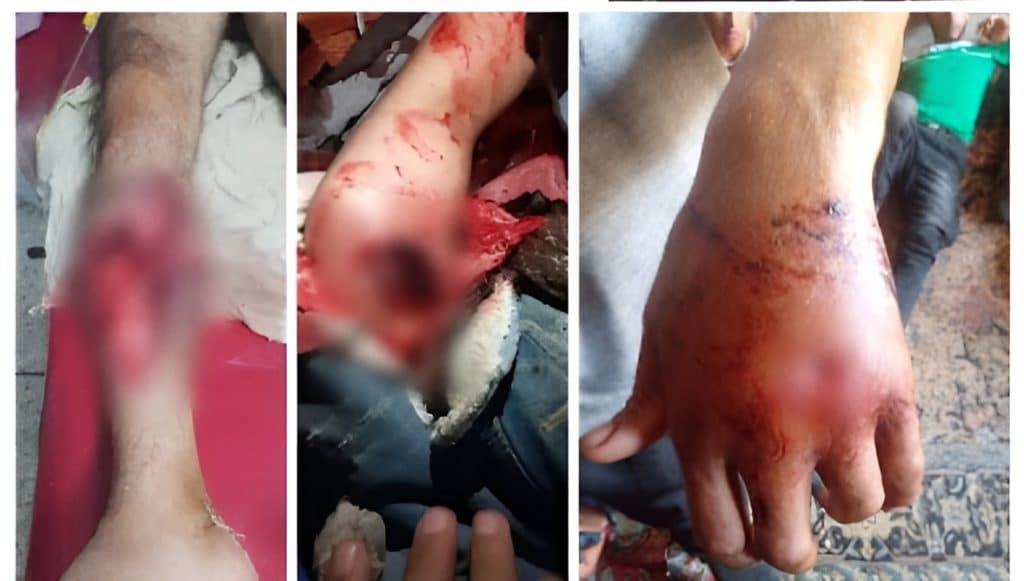
He continues: “and later for the third time, there was a canal, we crossed and then we were confronted by the Turkish border police. They hit people who want to go to Turkey with sticks and irons like electric gears. Because my friends and I were not in good health, they hit us in the face with a stick or with their hands, and they treat people very brutally. When we were in police custody, they beat each of us and that too in their own way. After an hour or an hour and a half later, they brought us back and sent us across the border to Iran.”
Systematic violence
This is a horrific story, however it is far from an isolated event. Brutal violence is an integral part of the EU’s border campaign, as No Name Kitchen witness on a daily basis where we are based on Europe’s external borders. Turkiye and Iran are not European Union countries but Turkiye is partner of European Union in migration control and the government of Ankara receives millions of euros from Brussels so Trukiye’s authorities keep asylum seekers and people who are migrating far from our borders, more since the big agreement of 2016 that started this humanitarian crisis that we face now all along the Balkan borders.
As detailed in Said’s harrowing story, what we call a ‘push-back’ is a forced return of people, without a legal process, back across a border they have just crossed. It is documented that very often, such returns are enforced with violence including beatings of different kinds, theft of personal property, sexual violence, verbal harrassment.
In Turkiye it is particularly difficult to monitor these oppressive acts as in the past few years there has been an increase in criminalisation and political hostility towards those transiting through the country(from countries such as Syria, Afghanistan, Iraq), as well as criminalising solidarity and humanitarian efforts.
Externalization of European borders
Said highlighted that he had lived well in Iran for the last 2 years and was only continuing his journey because of the worsening humanitarian situation there. Turkiye used to be seen as a welcoming country for people seeking asylum also, but increasingly violent rhetoric used against migrating populations mean Erdoğan’s government have been creating an increasingly hostile environment for non-Turks throughout the country. As Human Rights Watch report, Afghans are unable to even register for asylum applications since the Taliban takeover of 2021. People are left with little choice but to flee to the safety of the European Union.
On top of the €6 billion given as part of the ‘EU-Turkey deal’ in 2016, in 2022 the European Commission pledged 220million euros to: “support further border control measures at Türkiye’s Eastern border. This programme will notably fund new equipment (surveillance masts, cameras, lightning systems) at the border with Iran and Iraq, as well as training for officials in matters such as the use of border management technologies…and responding to large-scale mixed migration flows.”
What this translates to is further capacities in continuing the pattern of pushbacks as a means of “border management”, which we will always condemn as unjustifiable human rights abuse. It is a traceable fact that the more sophisticated surveillance and other technologies at borders are, the more people suffer as they try to cross. However, people do still cross because they have no other choice. As conditions at borders become more difficult for people trying to cross them, there is an increased reliance on people smugglers in order to successfully complete the journey. This is a fact European governments are highly aware of, while simultaneously claiming that their oppressive ‘border management’ policies are intended to stop such activities.
Week in and week out, year in and year out, we, in No Name Kitchen, publish reports of what is happening to people on Europe’s borders. We provide solidarity and support to people who have been subjected to pushbacks. It is validating to see the reach of our work when No Name Kitchen activists are contacted by people in the areas where our bases are, from those who have reached their goal country, and from people who have not even met us yet on a daily basis to ask for support, either in a material way or to makes people’s voices heard.

